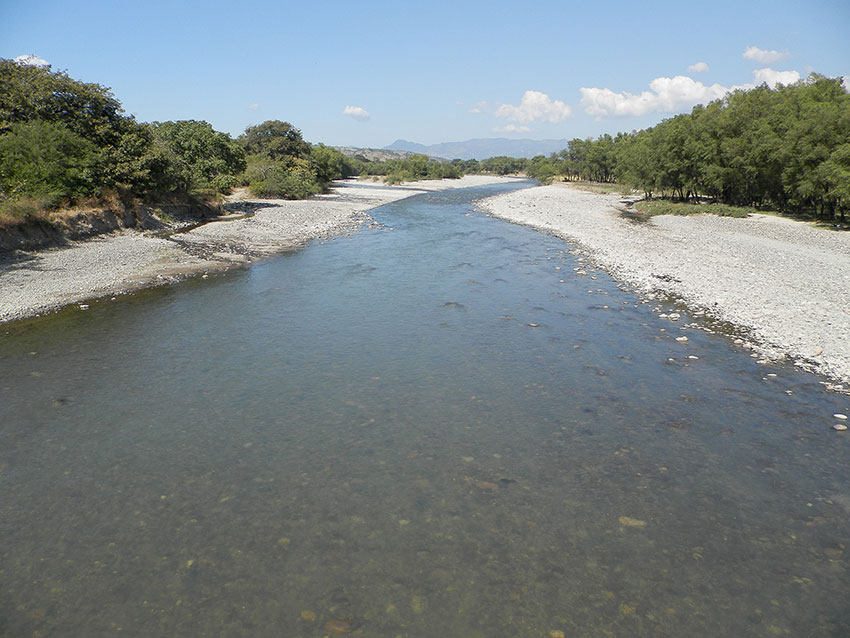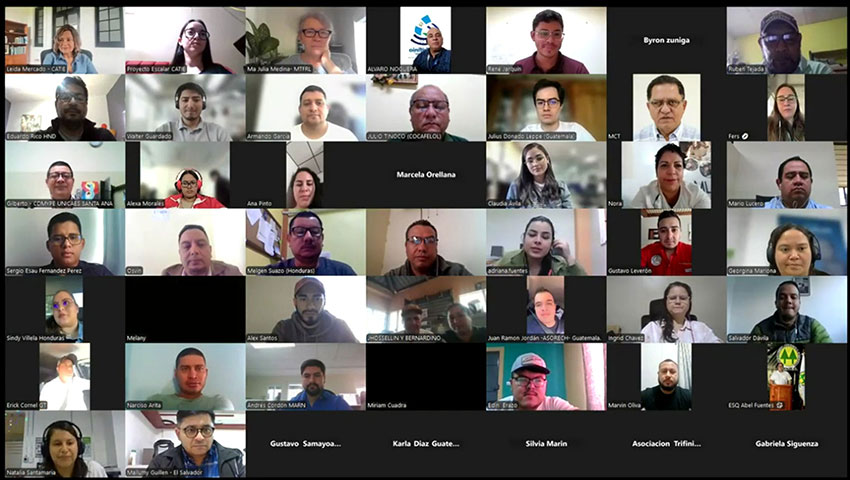CATIE strengthens capacities in financing for adaptation to climate change and sustainable management of water resources in the Central American Dry Corridor

- Training provides tools to key actors in the region to manage financing for climate change adaptation and sustainable management of water resources.
The Tropical Agricultural Research and Higher Education Center (CATIE), through the ESCALAR project (Scaling Climate Change Adaptation Solutions for Resilience and Migration Reduction in the Central American Dry Corridor), with support from the Swedish Embassy and in coordination with WINROCK - USAID, has initiated the Climate Adaptation Financing Course.
The objective of this course is to provide participants with the tools and knowledge necessary to manage financing that will enable local stakeholders and users to improve adaptation to climate change and sustainable water resource management in the Central American Dry Corridor, with special emphasis on the upper Lempa River watershed.
The course is developed under a hybrid modality. The first session, held virtually on November 28, 2024, was attended by 62 professionals from public, private, civil society and academic institutions from El Salvador, Honduras and Guatemala. Attendees included officials leading initiatives related to climate change adaptation in the region, as well as representatives of associations, commonwealths, cooperatives and Associative Rural Enterprises (ERAs), including key partners of the ESCALAR project.

In this initial session, entitled “Introduction to Climate Finance,” participants were introduced to key concepts related to climate, climate change and variability, the effects and impacts of climate phenomena on the agricultural sector in Central America and the conceptual bases for their analysis and evaluation.
The following modules will address key topics such as climate rationality, sources and mechanisms of climate finance, project design and financial evaluation, preparation of financing proposals, project and risk management, culminating in a face-to-face module focused on practical exercises and case studies with a focus on climate solutions.
This course is supported by the “Cuenca Alta del Río Lempa” project, funded by WINROCK - USAID, which aims to strengthen climate resilience and improve the governance of natural resources in the basin. The municipalities benefiting from this initiative are Esquipulas, Olopa, Jalapa and Asunción Mita in Guatemala; San Antonio Pajonal, Candelaria de la Frontera, Santiago de la Frontera, Metapán and La Palma in El Salvador; and Ocotepeque, Sinuapa, Santa Fe and Concepción in Honduras.
More information:
Dra. Leida Mercado
ESCALAR Project leader – CATIE
lmercado@catie.ac.cr
Flor Elisa Molina
Instructor
flor.molina@catie.ac.cr
Written by:
Patricia Orantes
Development Communication Specialist
ESCALAR Project - CATIE
patricia.orantes@catie.ac.cr



